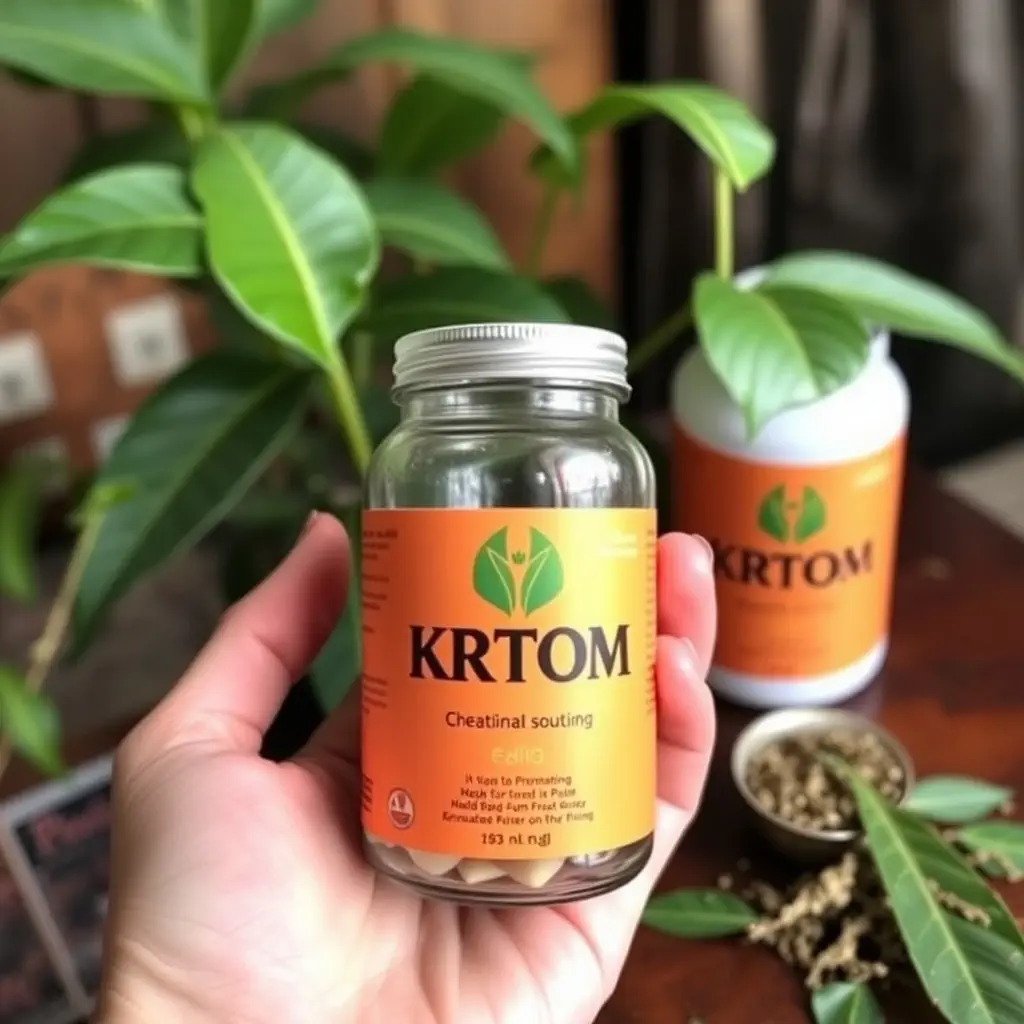Kratom, derived from the leaves of Mitragyna speciosa, has been studied for its potential anti-inflammatory and analgesic effects due to its alkaloids, mitragynine and 7-hydroxymitragynine, which interact with opioid receptors. While it may influence inflammation by inhibiting certain pro-inflammatory cytokines, its legal status remains complex, particularly in the United States where regulations vary by state. In Utah, as of the last update, kratom is not a controlled substance under state law, but local governments have jurisdiction to regulate it. This means consumers must be aware that the legality of kratom can differ across cities and counties within Utah. It's crucial for anyone considering kratom to consult healthcare professionals given the intricacies of inflammation and individual health considerations. Additionally, users should verify current local laws and stay informed on any legislative changes affecting kratom's legal status to ensure compliance and safety. Always source kratom from reputable providers to maintain quality and safety standards.
explore the potential of kratom as a natural anti-inflammatory agent, its legal status particularly in Utah, and guidance on safely incorporating it into your health regimen. Delve into how kratom interacts with the body’s inflammatory response, and understand the nuances surrounding its legality within the state. This article aims to clarify these aspects, providing a comprehensive overview for those interested in the therapeutic properties of kratom leaves as an alternative to traditional anti-inflammatory treatments.
- Understanding Kratom's Role in Inflammation Reduction
- Legal Status of Kratom in Utah: Is Kratom Legal and Regulated?
- Integrating Kratom Supplements into Your Anti-Inflammatory Regimen Safely and Legally
Understanding Kratom's Role in Inflammation Reduction

Kratom, derived from the leaves of Mitragyna speciosa, has garnered attention for its potential role in modulating inflammation. This botanical supplement contains a complex blend of alkaloids, with mitragynine and 7-hydroxymitragynine being the most prominent. These compounds are believed to interact with the body’s opioid receptors, offering both analgesic and anti-inflammatory effects. While research is ongoing, preliminary studies suggest that kratom may influence several pathways involved in inflammation. For instance, it has been observed to inhibit certain pro-inflammatory cytokines, which are proteins important in signaling a response to injury or infection. This could be beneficial for individuals experiencing chronic inflammation or inflammation-related conditions.
The legal status of kratom varies across different regions, with specific attention given to its legality in Utah. As of the knowledge cutoff date, kratom is not explicitly scheduled as a controlled substance under the Utah Controlled Substances Act. However, it’s subject to regulatory changes, and consumers should verify its current legal status before use. It’s crucial for potential users to be aware of both the potential anti-inflammatory benefits and the evolving regulatory landscape surrounding kratom in their jurisdiction. Users considering kratom as a supplement for inflammation reduction should consult with healthcare professionals to ensure safe and informed usage, particularly given the complexity of inflammation processes and individual health considerations.
Legal Status of Kratom in Utah: Is Kratom Legal and Regulated?

Mitragyna speciosa, commonly known as kratom, has gained attention for its potential effects on inflammation reduction and overall well-being. As a supplement derived from a tropical evergreen tree native to Southeast Asia, kratom’s legal status varies across different states within the United States. In Utah, the legality of kratom is subject to specific regulations. Currently, kratom is not explicitly classified as a controlled substance under Utah state law. However, the state has implemented certain restrictions on its sale and distribution. Specifically, municipalities within the state have the authority to regulate kratom sales locally. This means that while kratom is legal in Utah, residents may find varying regulations depending on their city or county, with some areas enforcing stricter controls. It’s important for consumers to be aware of these local ordinances when considering the use of kratom supplements for inflammation reduction. To navigate this complex legal landscape, individuals interested in purchasing kratom in Utah should verify the current regulations within their specific jurisdiction. This ensures compliance with state and local laws and promotes responsible usage of kratom products. Keeping abreast of any changes in legislation is crucial for consumers seeking kratom as a supplementary measure for managing inflammation, as the legal status can evolve with new legislative actions or court rulings.
Integrating Kratom Supplements into Your Anti-Inflammatory Regimen Safely and Legally

When considering the integration of kratom supplements into your anti-inflammatory regimen, it’s crucial to first understand the legal status of kratom in your area. As of the knowledge cutoff date, the legality of kratom varies across different states within the United States. For instance, in Utah, the status of kratom has seen legislative changes. As of the latest update, kratom is legally available in Utah, provided it does not contain any of the controlled alkaloids. This means that residents interested in using kratom as part of their health regimen can do so within the confines of the law, but it’s essential to stay informed on any updates to legislation that may affect its status.
Before incorporating kratom supplements into your routine, it’s important to consult with a healthcare provider. Kratom interacts with various systems in the body and can have both beneficial and adverse effects depending on the dosage, frequency of use, and individual physiology. A healthcare professional can provide guidance tailored to your specific health needs and monitor any changes in your condition, ensuring that kratom is used as a complementary measure alongside other anti-inflammatory strategies. Additionally, due diligence in sourcing high-quality kratom from reputable vendors is necessary to avoid products that may be contaminated or misrepresented. By approaching the use of kratom with careful consideration and responsible practices, individuals can explore its potential anti-inflammatory properties in a manner that aligns with both personal health goals and legal compliance.
Incorporating kratom supplements into a health regimen for inflammation reduction can be beneficial, as outlined in the discussion of its role and the integration process. However, it’s imperative to navigate this approach within the confines of the law; clarifying the legal status of kratom, particularly in Utah, is crucial for individuals considering its use. As established, kratom’s legal standing in Utah allows for its responsible consumption provided users adhere to local regulations. By understanding both the scientific and legal dimensions of using kratom, individuals can make informed decisions that support their well-being while respecting the law. It is advisable to consult with healthcare professionals when adding any new supplement to your health routine to ensure safety and efficacy.






